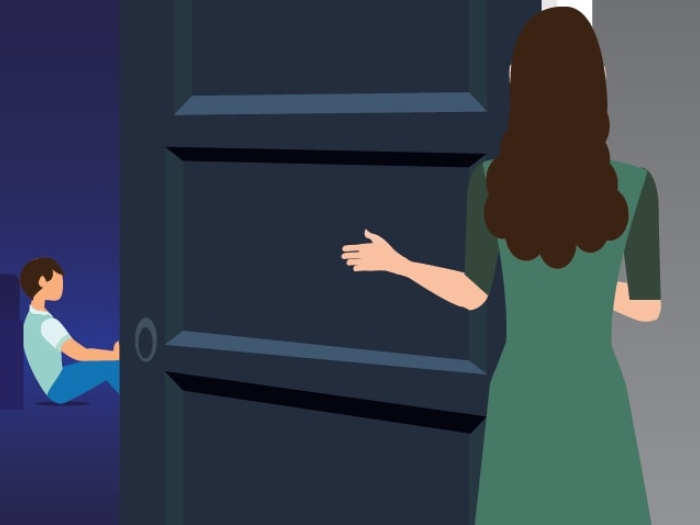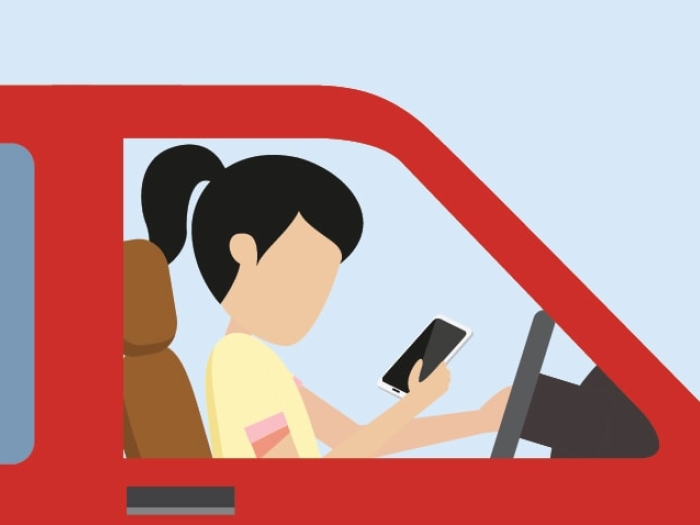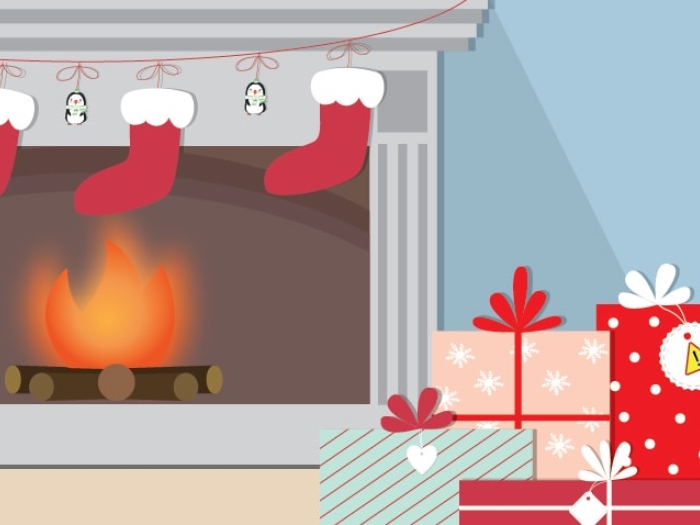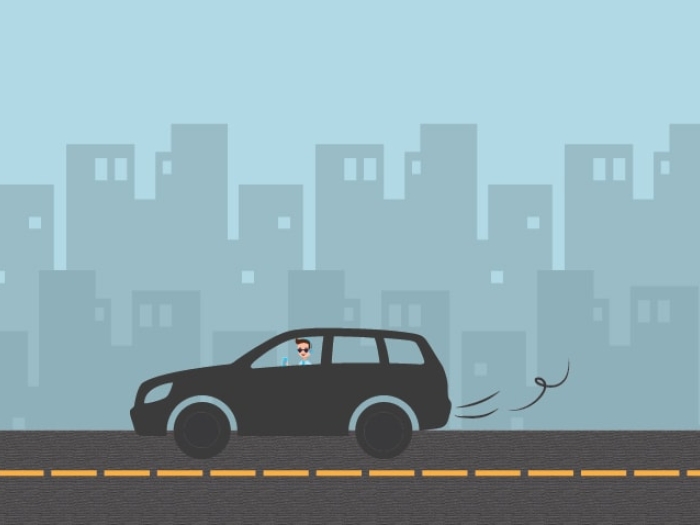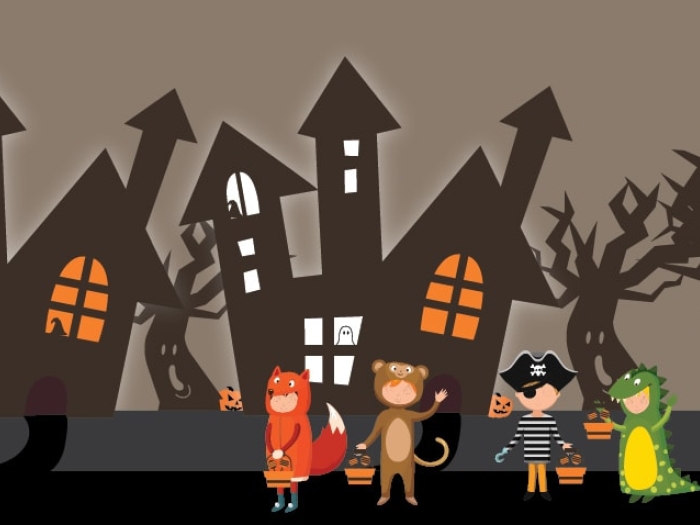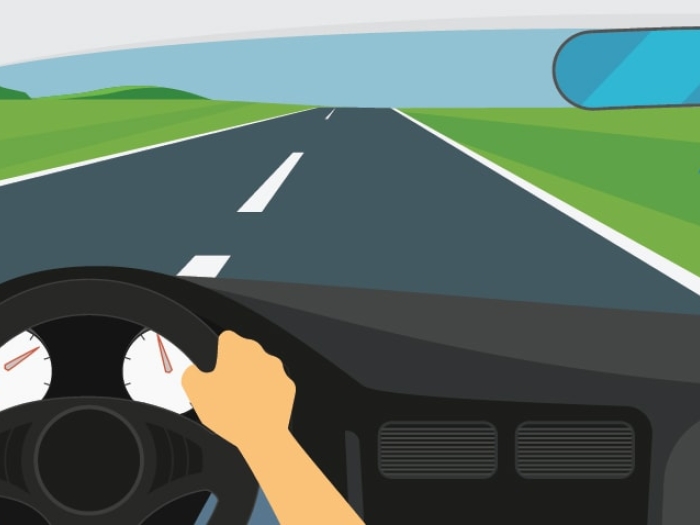As parents decide if their tween is responsible enough to be home alone this summer, safety must be considered in cases of emergency — or if firearms are in the home.
7:00 AM
Author |

Parents are more confident their preteen child would know what to do if there were a house fire or tornado than whether the child would avoid playing with guns if home alone, a new national poll says.
SEE ALSO: Should Schools Start Later for the Sake of Teen Sleep?
Four out of five parents of kids age 9 to 12 say they are very confident their child would appropriately handle an emergency like a storm (82 percent) or a fire (78 percent). Sixty-four percent of parents are confident their child would know when to call 911.
Fewer parents (53 percent) are very confident their tween would not play with guns when adults weren't home, according to a new report from the C.S. Mott Children's Hospital National Poll on Children's Health.
"Many parents struggle deciding if their child is responsible enough to be left home alone, especially as their child moves into the tween years. This is an especially important decision during the summer when many parents have to make arrangements for kids who are out of school," says Sarah J. Clark, MPH, director of the C.S. Mott Children's Hospital National Poll on Children's Health.
"Our poll found that while parents are confident that their children would know what to do if faced with emergencies like a fire or storm, they expressed a great deal of hesitancy about gun safety. Nearly half are not confident their tween would not play with guns encountered at a home with no adult supervision."
Mothers and fathers report the same level of confidence about their tweens' likely safety practices, and have similar confidence levels for sons and daughters. This indicates that a broad spectrum of parents is aware of the potential for accidental gun injuries, the Mott poll report notes. And with 1 in 3 U.S. households having at least one gun, it is not unlikely that unsupervised tweens might encounter one at home or in a friend or relative's home.
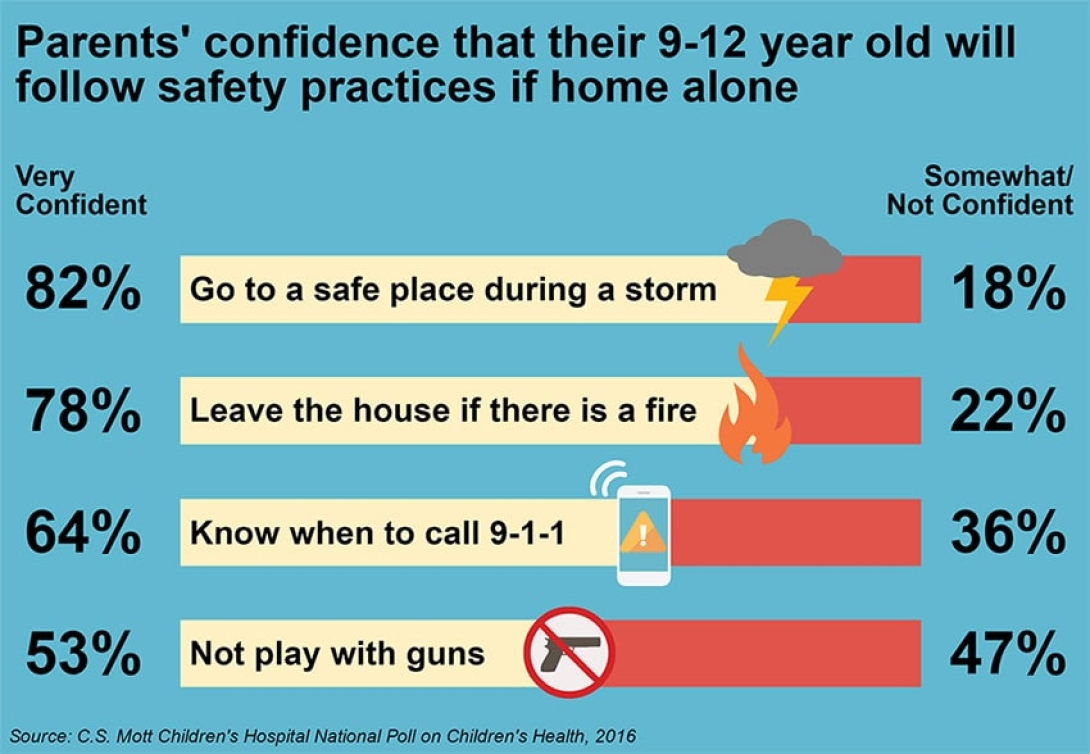
Gun safety at home
According to a 2010 Mott poll, more than half of parents who did not own a gun never discussed firearm safety with their children ages 5 to 17. One in four parents who owned a gun was very worried that their children could get hurt with a gun when at a friend's home.
SEE ALSO: Public to Presidential Candidates: Prioritize Children's Health
Yet staying home alone is routine for 13 percent of tweens, according to this month's Mott report. Nine percent of younger tweens (ages 9 and 10) and 19 percent of older tweens (ages 11 and 12) stay home alone for at least two hours every week.
Unsupervised time increases in summer when children are out of school. Parents report that summer plans for tweens include 24 percent staying home alone or with siblings, and 11 percent staying regularly with a babysitter or an adult relative.
The poll included a nationally representative sample of parents with at least one child age 9 to 12.
"There is no single 'right age' when a child is ready to stay home alone," Clark says. "Children at the tween age of 9–12 years may feel ready to stay home alone, but not all will be able to handle the different situations that may arise. Parents making this decision should consider the maturity of the child, sibling ages, neighborhood safety and how close they are to friends or relatives who could step in to help if needed. Parents should make sure tweens are responsible and knowledgeable about safety practices in case of an emergency."
Children at the 'tween' age of 9 to 12 years may feel ready to stay home alone, but not all will be able to handle the different situations that may arise.Sarah J. Clark, MPH
Home alone safety tips
The American Red Cross offers these guidelines for parents.
-
Post an emergency phone list that includes 911, parents' mobile numbers, numbers for neighbors and for anyone else who is close and trusted.
-
Practice an emergency plan in case of fire, severe weather or injury.
-
Remove or safely store dangerous items like guns, knives, hand tools, power tools, razor blades and scissors.
-
Make sure potential poisons like detergents, polishes, pesticides, lighter fluid and lamp oils are stored in locked cabinets or out of the reach.
-
Make sure medicine is kept in a locked storage area.
See more safety tips and resources from the American Red Cross, KidsHealth and the National Crime Prevention Council.
Gun safety guidelines for tweens
-
Always keep guns unloaded and locked up.
-
Lock and store bullets in a separate place.
-
Hide the keys to the locked boxes.
-
Talk to your child about guns and gun safety. By removing the mystery surrounding guns, your child may be curious about guns, and more likely to follow safety rules.
-
Find out if there are guns in the homes where your children play. If so, talk to the adults in the house about how and where guns are stored.
See more gun safety information from the American Academy of Pediatrics and the National Rifle Association's Eddie Eagle Gun Safe Program.

Explore a variety of healthcare news & stories by visiting the Health Lab home page for more articles.

Department of Communication at Michigan Medicine
Want top health & research news weekly? Sign up for Health Lab’s newsletters today!
